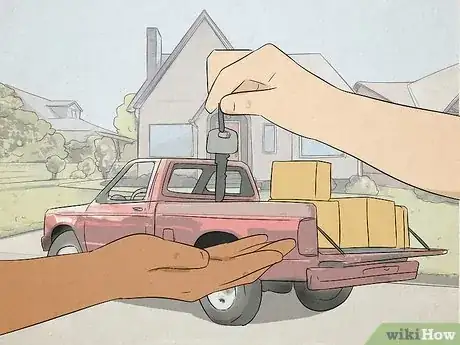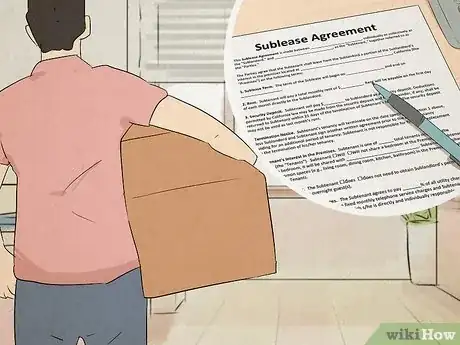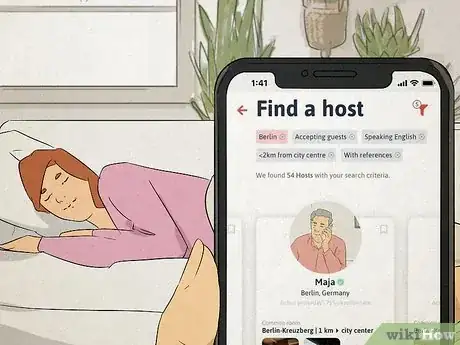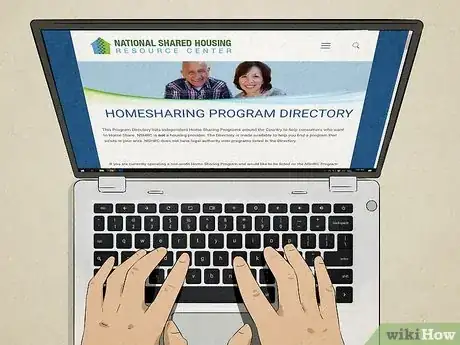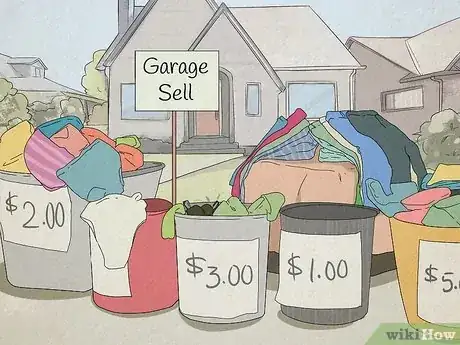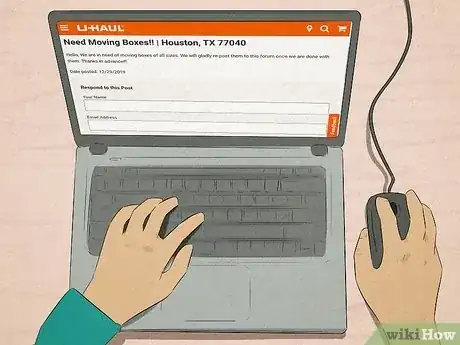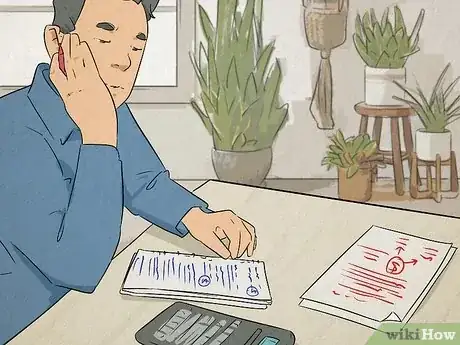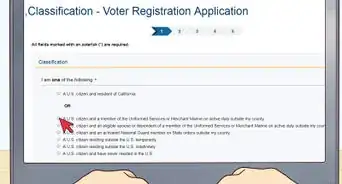This article was co-authored by Marty Stevens-Heebner, SMM-C, CPO® and by wikiHow staff writer, Janice Tieperman. Marty Stevens-Heebner was the first Certified Senior Move Manager (SMM-C) in the United States and is Founder and CEO of Clear Home Solutions, a move management and professional organizing company based in southern California. Marty is also a Certified Professional Organizer and a Certified Aging in Place Specialist (CAPS) through the National Association of Home Builders. She is the President-Elect and is on the board of directors of the National Association for Senior Move Managers, a member of the National Association of Professional Organizers, and has been acknowledged as a Hoarding Specialist and ADHD Specialist through the Institute for Challenging Disorganization.
There are 19 references cited in this article, which can be found at the bottom of the page.
This article has been viewed 98,701 times.
Looking for a change of scenery? Moving to a new place can be an exciting new adventure, but it also comes with its fair share of uncertainty, especially if you’re running low on funds. There’s no need to worry—you’ve come to the right spot. Whether you’re looking for your first place or heading to a new state, we’ve put together plenty of low-budget options to help you out. We’ve even included some money-saving tips and tricks you can use during and after your move.
Steps
Expert Q&A
-
QuestionHow do I start saving to move out?
 Marty Stevens-Heebner, SMM-C, CPO®Marty Stevens-Heebner was the first Certified Senior Move Manager (SMM-C) in the United States and is Founder and CEO of Clear Home Solutions, a move management and professional organizing company based in southern California. Marty is also a Certified Professional Organizer and a Certified Aging in Place Specialist (CAPS) through the National Association of Home Builders. She is the President-Elect and is on the board of directors of the National Association for Senior Move Managers, a member of the National Association of Professional Organizers, and has been acknowledged as a Hoarding Specialist and ADHD Specialist through the Institute for Challenging Disorganization.
Marty Stevens-Heebner, SMM-C, CPO®Marty Stevens-Heebner was the first Certified Senior Move Manager (SMM-C) in the United States and is Founder and CEO of Clear Home Solutions, a move management and professional organizing company based in southern California. Marty is also a Certified Professional Organizer and a Certified Aging in Place Specialist (CAPS) through the National Association of Home Builders. She is the President-Elect and is on the board of directors of the National Association for Senior Move Managers, a member of the National Association of Professional Organizers, and has been acknowledged as a Hoarding Specialist and ADHD Specialist through the Institute for Challenging Disorganization.
Professional Move Manager Give yourself plenty of time if you plan on saving money by doing the packing yourself. If you try to do it all the day before, you may not get everything done in time. Then, as you're scrambling to get finished packing, things might not get packed as carefully, so there could end up being a lot of breakage.
Give yourself plenty of time if you plan on saving money by doing the packing yourself. If you try to do it all the day before, you may not get everything done in time. Then, as you're scrambling to get finished packing, things might not get packed as carefully, so there could end up being a lot of breakage. -
QuestionHow do I prepare myself to move out for the first time?
 Marty Stevens-Heebner, SMM-C, CPO®Marty Stevens-Heebner was the first Certified Senior Move Manager (SMM-C) in the United States and is Founder and CEO of Clear Home Solutions, a move management and professional organizing company based in southern California. Marty is also a Certified Professional Organizer and a Certified Aging in Place Specialist (CAPS) through the National Association of Home Builders. She is the President-Elect and is on the board of directors of the National Association for Senior Move Managers, a member of the National Association of Professional Organizers, and has been acknowledged as a Hoarding Specialist and ADHD Specialist through the Institute for Challenging Disorganization.
Marty Stevens-Heebner, SMM-C, CPO®Marty Stevens-Heebner was the first Certified Senior Move Manager (SMM-C) in the United States and is Founder and CEO of Clear Home Solutions, a move management and professional organizing company based in southern California. Marty is also a Certified Professional Organizer and a Certified Aging in Place Specialist (CAPS) through the National Association of Home Builders. She is the President-Elect and is on the board of directors of the National Association for Senior Move Managers, a member of the National Association of Professional Organizers, and has been acknowledged as a Hoarding Specialist and ADHD Specialist through the Institute for Challenging Disorganization.
Professional Move Manager If you're going to be moving, go to liquor stores, restaurants, and supermarkets, and ask if they have any boxes you can have. Also, save any boxes you get from ordering things online. This can save you money on storage for all of your thnigs.
If you're going to be moving, go to liquor stores, restaurants, and supermarkets, and ask if they have any boxes you can have. Also, save any boxes you get from ordering things online. This can save you money on storage for all of your thnigs. -
QuestionI don’t have any money and I really want to move overseas. Is this a good idea?
 wikiHow Staff EditorThis answer was written by one of our trained team of researchers who validated it for accuracy and comprehensiveness.
wikiHow Staff EditorThis answer was written by one of our trained team of researchers who validated it for accuracy and comprehensiveness.
Staff Answer wikiHow Staff EditorStaff AnswerIt's definitely better to wait until you have some money saved up. Still, if your heart is really set on living abroad, consider moving to international cities with relocation incentives, like Antikythera, Greece; Candela, Italy; Kaitangata, New Zealand; and Albinen, Switzerland.
wikiHow Staff EditorStaff AnswerIt's definitely better to wait until you have some money saved up. Still, if your heart is really set on living abroad, consider moving to international cities with relocation incentives, like Antikythera, Greece; Candela, Italy; Kaitangata, New Zealand; and Albinen, Switzerland.
Warnings
- Always do plenty of research before moving into a new home or apartment, especially if you’ll be living with someone you don’t know.⧼thumbs_response⧽
References
- ↑ https://www.forbes.com/sites/laurabegleybloom/2021/07/28/the-best-and-cheapest-places-to-live-in-america-in-2021-ranked-by-the-experts/?sh=3c79dadb2e28
- ↑ https://www.theguardian.com/travel/2013/dec/03/driveaway-drive-across-us-canada-free-drive-out-courier
- ↑ https://www.forbes.com/sites/laurabegleybloom/2021/09/24/tired-of-where-you-live-get-paid-up-to-33000-to-move-to-one-of-these-towns/?sh=188b562676af
- ↑ https://www.apartmenttherapy.com/save-money-on-moving-costs-36992918
- ↑ https://www.npr.org/2022/01/04/1066218040/saving-money-tips
- ↑ https://www.census.gov/quickfacts/fact/table/US/HSG860219
- ↑ https://www.build-review.com/what-is-a-sublet-and-why-do-people-live-in-them/
- ↑ https://www.insider.com/guides/travel/long-term-airbnbs-monthly-rentals-sublet-faq
- ↑ https://www.colorado.edu/studentaffairs/2021/04/19/things-know-about-subletting
- ↑ https://about.couchsurfing.com/about/how-it-works/
- ↑ https://about.couchsurfing.com/about/faq/
- ↑ https://www.hostelworld.com/blog/living-in-a-hostel/
- ↑ https://homeshare.org/wp-content/uploads/2012/04/A-Consumers-Guide-to-Homesharing.pdf
- ↑ https://www.apartmenttherapy.com/save-money-on-moving-costs-36992918
- ↑ https://www.apartmenttherapy.com/8-spots-to-get-moving-boxes-fr-1-103420
- ↑ https://www.moneycrashers.com/best-crowdfunding-sites-personal-needs/
- ↑ https://www.nerdwallet.com/article/loans/personal-loans/family-loans
- ↑ https://www.idealist.org/en/careers/how-i-found-a-job-in-a-new-city-before-moving-there
- ↑ https://www.inc.com/john-rampton/30-ways-to-make-money-on-the-side.html
- ↑ https://www.nerdwallet.com/article/finance/how-to-budget
- ↑ https://www.apartmenttherapy.com/save-money-on-moving-costs-36992918



